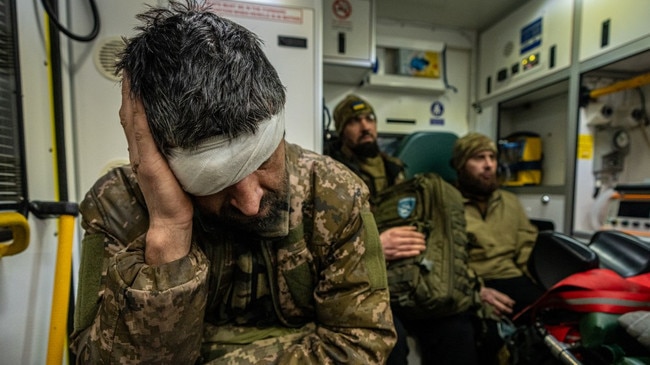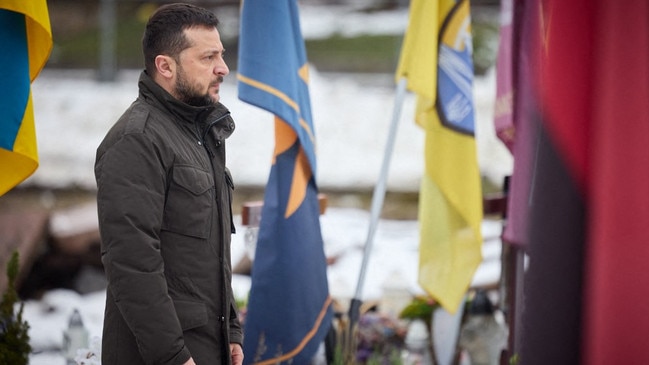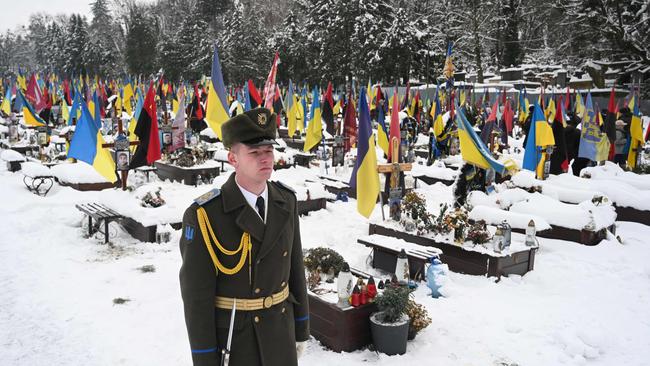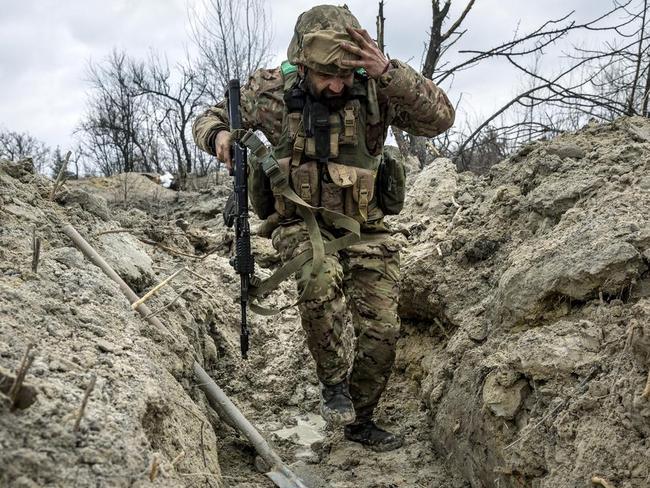Ukraine’s birthrates are plummeting. The next generation needs a plan
Babies are an increasingly rare sight in a society that prizes family above all but now has the world’s lowest birthrate, throwing the country’s very survival into question.

Heads turn as a couple enter a cafe with a baby, its mother cradling it close to her chest against the winter cold. The sight is so rare in this wartime capital it draws stares, although they melt into smiles when the child lets out a tiny whimper.
Ukraine now has the lowest fertility rate in the world: an average 0.7 children per woman of child-bearing age, a government-funded think tank told The Times. This, compounded by mass, violent death and the exodus of millions of people, has thrown its survival as a nation into question. The demographic picture is bleak, scientists say.
“Male life expectancy has decreased from 66 to 67 before the war to 57 to 58,” said Ella Libanova, director of the Institute for Demography and Social Studies at the National Academy of Sciences of Ukraine. Only Chad (54), Nigeria (54), Lesotho (55) and the Central African Republic (55) fare worse.
Military losses are kept secret in Ukraine but a team of 12 demographic academics has calculated their impact on society by using other sources. “Information is leaking and we understand the age of those people killed. We are looking at the experience of the Balkan war, we are looking at our previous data and using every available source to estimate the situation. We talk with the mayors and understand the situation with the mortality rate for the big cities like Kyiv,” Libanova explained.

Ukraine had a profound demographic crisis even before the war, with a birthrate of 1.16 and only a small proportion of the population aged between 20 and 40 – the demographic most likely to die in combat. US military sources estimate Ukraine’s war dead to be between 70,000 and 100,000.
Now the crisis has become so severe that Ukraine’s ministers have had to develop a repopulation strategy for 2040, Libonova said, but it lacks concrete plans. “There are strategic goals: increase the birthrate, eliminate early mortality, migration growth, adapt society to an ageing population. But the measures are not prescribed. Frankly speaking, they tried to skip everything that actually needs to be done.”
Family has always been at the heart of Ukrainian tradition. Pickling techniques and borscht recipes are passed down the generations, along with folk songs that fuel celebrations of birthdays and the warmth with which guests are received at home. Yet these days it is unusual to see a home still intact.
Some six million people are thought to have fled the country for Europe, with four million more stranded in territory occupied by Russia. Military-aged men are barred from leaving Ukraine and many are serving at the front, so the sexes are largely separated.

Nathalia Dobrohorska, a teacher of Ukrainian language and literature, left Kyiv for London with her twin daughters, then aged six, a month after Russia invaded. Her husband, Serhiy, stayed behind, willing to sacrifice his own happiness for their safety.
“I did not have the opportunity to hug them for a year and a half,” he said. “I’m alone in our house. When I see their toys it’s so painful, I’m wandering around like a wounded animal. If I go into their rooms with all their things there, my very soul goes cold.”
The family were briefly reunited when Ukrainian troops launched their counteroffensive last year, but the girls left again after Russian rocket strikes. “The first time they went I cried almost every day,” he said. “By the second time I had already cried all my tears.”
Only 57 per cent of such families say they will return to Ukraine when the war ends, according to Gradus, a Ukrainian research company.

“They say they will come back – but if they stay long enough, their kids are going to kindergartens and schools, they will integrate and eventually lose the motivation to come back,” said Timofiy Brik, rector at the Kyiv School of Economics. “Before the war we had a population of 36 million. That’s thought to have fallen to 25 million.”
The vast size of Ukraine’s territory will lead to problems with population density that will leave people scattered across the country and damage the prospects for its economic recovery when the war finally ends, he added.
“You need human capital to rebuild the country and for investment. Who is going to open a new IT company or a new bank in a country with such a small population?”
Any post-war government will have to throw open its borders. “We will need to attract a lot of migrants from other countries, including post-Soviet Asian countries like Kazakhstan, Uzbekistan and Tajikistan, as well as European nations like Poland, while working on bringing back the Ukrainian diaspora.”
Brik joked that a small bubble of academics from Kyiv who have stayed in the capital were doing their bit. “My wife and I had a baby four months ago. And in our small circle, everyone is having babies. People are making jokes that even under an existential threat, people can still be mobilised to give birth to the next generation.”
The Times




